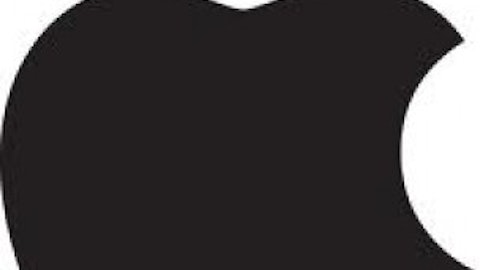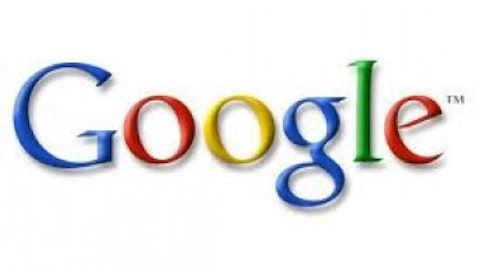Intel Corporation (NASDAQ:INTC) (NASDAQ:INTC) recently announced that an Intel Atom processor would be in the forthcoming Samsung Galaxy Tab 3, a 10.1 inch Android tablet, a move that has implications for ARM Holdings plc (NASDAQ:ARMH), Microsoft Corporation (NASDAQ:MSFT) and Apple Inc. (NASDAQ:AAPL). Intel’s long awaited assault on mobile computing is finally gathering steam.
An endorsement and a rebuff
The announcement was made even more jolting by the fact that the Intel processor is not from Intel Corporation (NASDAQ:INTC)’s latest and greatest Haswell processor family, which is also being rolled out this week (I’ll have more on Haswell in my next post). The processor selected for the Tab was a fairly humble dual core Clover Trail + Atom using Intel’s older 32 nm process and clocked at 1.6 GHz.
Various Clover Trails have been finding their way into Windows 8 tablets since the beginning of the year, and these tablets from companies such as HP (Elitepad 900) were reasonably thin and light. Moreover, independent testing by AnandTech showed that they could outperform multicore ARM Holdings plc (NASDAQ:ARMH) processors such as the nVidia Tegra 3. In a seperate AnandTech article, a Clover Trail Atom (Z2760) was shown to be more power efficient than competing ARM processors, the Tegra 3 and the Qualcomm APQ8060A.
But the Clover Trail tablets and ultrabooks hadn’t made much of a splash as PC sales continued to decline through the first quarter, and attention shifted to the arrival of Haswell, which was assumed would usher in a new era of high performance Intel Corporation (NASDAQ:INTC) tablets.
Samsung’s decision to use the Atom is both an endorsement of Intel architecture and a rebuff to Haswell. As I’ll discuss in my next post, Haswell may not be able to meet the very high expectations for energy efficiency that I and many others had.
Samsung makes ARM-based SOCs that go into its phones, and provides foundry services to other manufacturers such as Apple Inc. (NASDAQ:AAPL). Samsung has a huge stake in the ARM Holdings plc (NASDAQ:ARMH) ecosystem, so the decision to go with Intel Corporation (NASDAQ:INTC) for a flagship product probably didn’t come easily.
But, as I pointed out, the Clover Trail Atoms were already outperforming ARM processors, and Samsung knew that even more efficient 22 nm Bay Trail Atoms would be available in the fourth quarter. Intel could pitch the Clover Trail adoption as a way to ensure access to Bay Trail when it became available.
Samsung has not abandoned ARM Holdings plc (NASDAQ:ARMH), of course, but they may believe it best to disengage gradually from the ARM ecosystem as Intel processors become dominant.
ARM processor deliveries will not be immediately impacted by the Samsung decision, so we’ll probably not see any change in the roughly 20% per year growth in ARM processor deliveries and licensing revenue when ARM Holdings plc (NASDAQ:ARMH) reports their results for the second quarter. However, ARM processor deliveries could slow down beginning in the third quarter if other manufacturers adopt Intel Corporation (NASDAQ:INTC) for their Android devices.
Does Microsoft get the message?
Microsoft Corporation (NASDAQ:MSFT) started the disintegration of the Wintel marriage with its Windows on ARM Holdings plc (NASDAQ:ARMH) initiative announced at CES in 2011. Since then, the partners have drifted apart as Windows 8 was released to mixed reviews and accusations that it had contributed to the steep decline in PC sales in the first quarter. Until now, Clover Trail processors had been used exclusively in Windows 8 tablets and ultrabooks. Intel Corporation (NASDAQ:INTC) in an Android tablet takes a direct swipe at Windows RT and Windows 8, in effect saying that Intel won’t wait any longer for Windows 8 to gain traction in Mobile. Other manufacturers with Android tablets (and which of the PC makers doesn’t have an Android tablet these days?) may follow Samsung’s lead, especially those with considerable Intel experience.
Given that Windows RT and Surface RT have not been successful, it seems certain that Redmond regrets the whole endeavor, although Microsoft Corporation (NASDAQ:MSFT) management continue to put on a brave face. Earlier this year, the sensible thing for Microsoft to do would have been to propose reuniting with Intel Corporation (NASDAQ:INTC). Microsoft would give up on ARM Holdings plc (NASDAQ:ARMH) and in return Intel would give up on Android. Now, it appears to late for that. Microsoft still has issues with Windows 8 that will hopefully be addressed in 8.1, so it doesn’t have much leverage. Meanwhile, Intel has come to believe that the Android market could be its market.
Windows 8 was supposed to bring the mobile market to Intel, but Intel has decided not to wait for it to arrive. Intel Inside would have been the key advantage of Wintel tablets, but now that’s gone for Microsoft Corporation (NASDAQ:MSFT). The immediate impact of Samsung’s decision will be negligible, but as other Android manufacturers join Samsung in adopting Intel Corporation (NASDAQ:INTC), Microsoft’s Windows 8.x sales could be hurt.
Whither Apple?
As an iOS developer, I really don’t care what processor platform Apple Inc. (NASDAQ:AAPL) adopts for their mobile devices, I just don’t want them to become disadvantaged. Apple has almost as much invested in the ARM ecosystem as Samsung. It’s not clear exactly how much of Apple’s capital budget goes to support the manufacture of its custom SOCs, but its probably a significant portion of the approximately $10 billion Apple plans to spend this year.
Given the momentum in favor of ARM Holdings plc (NASDAQ:ARMH), I don’t expect Apple to jump to Intel any time soon. In fact, I wonder if the delays in some products such as the next generation iPad might be due to a delay in getting the next Apple Inc. (NASDAQ:AAPL) designed SOC into production. (I’ll have a better feel for this after WWDC next week.) To compete with mainstream Android tablets, Apple needs to have a quad core processor, but this would be a first for Apple and they may have hit a technical snag.
The proliferation of Haswell ultrabooks and Bay Trail tablets in the Fall (whether Windows 8 or Android) will probably eat further into Apple’s tablet market share without a very compelling iPad refresh. Apple Inc. (NASDAQ:AAPL) certainly doesn’t need to lose more tablet market share. According to IDC’s Tablet Market share data, Apple’s share went from 58.1% in 2012 Q1 to 39.6% in 2013 Q1, while Samsung went from 11.3% to 17.9%.
Apple’s declining market shares for both smartphones and tablets underscores the need to increase R&D spending at Apple, which as I pointed out in “The Case for Lower Apple Margins,” is much lower as a percentage of revenue than Google Inc (NASDAQ:GOOG) or Microsoft Corporation (NASDAQ:MSFT). Higher R&D spending would allow Apple Inc. (NASDAQ:AAPL) to introduce new products and refresh existing products faster.
If Apple doesn’t respond adequately to the challenge posed by Intel Corporation (NASDAQ:INTC)’s processors in the fourth quarter, this will set the stage for Apple to abandon ARM in 2014, further damaging, if not killing, the ARM Holdings plc (NASDAQ:ARMH)ecosystem.
Mark Hibben has a position in Apple Inc. (NASDAQ:AAPL). The Motley Fool recommends Apple and Intel Corporation (NASDAQ:INTC). The Motley Fool owns shares of Apple, Intel, and Microsoft Corporation (NASDAQ:MSFT).
The article Intel’s Unlikely Ally, Samsung originally appeared on Fool.com.
Mark is a member of The Motley Fool Blog Network — entries represent the personal opinion of the blogger and are not formally edited.
Copyright © 1995 – 2013 The Motley Fool, LLC. All rights reserved. The Motley Fool has a disclosure policy.






